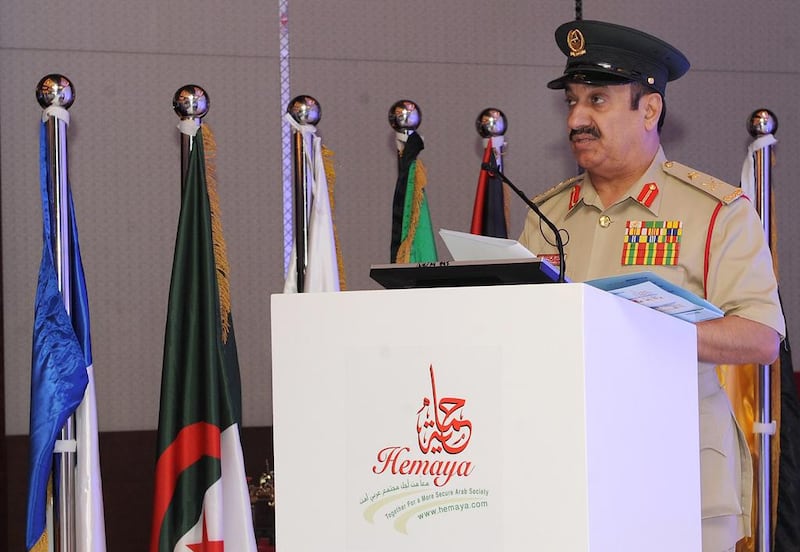DUBAI // An electronic system that will monitor the prescription and sale of drugs in the public and private sectors will be launched in weeks, an official said.
The system is being developed by the Ministry of Health, in collaboration with Dubai Police, and it is meant to spot any malpractice from doctors, pharmacists or anyone concerned in the drug industry.
Dr Amin Al Amiri, assistant undersecretary of the Ministry of Health for Medical Practices and Licensing, said: “This system is considered one of a kind in the Middle East.
“We have unified the medical prescriptions of narcotic drugs and psychotropic substances through the Ministry of Health in Abu Dhabi.
“This electronic system will be able to detect all illicit practices by physicians, pharmacists and, or, individuals.”
Dr Al Amiri said any suspected shipment would automatically be put on to the system’s database on import information, and would be subject to review by the Ministry of Health and Dubai Police.
“Those trucks will also be monitored when they are distributing [the merchandise] to the different hospitals and pharmacies,” he said, adding that the UAE had 420 repositories where drugs were stored and 2,420 pharmacies.
“Any physician prescribing such medication will no longer be dealing with paperwork but with the electronic system using his personal ID,” said Dr Al Amiri.
“The system will not allow any physician to prescribe a medication that will interact with another, raising the risk of addiction.
“It will monitor the whole process, from the prescription of the medication to the amount, and the patient will not be able to take a single extra pill.
“And the physician will no longer be able to prescribe medication according to his standards, but that of the Ministry of Health.”
Dr Al Amiri added that even if a patient were to go to another physician or pharmacist, the system would deny a request for the medication.
The development of the system came up on the first day of a drugs conference, the Hemaya International Forum on Drug Issues, organised by Dubai Police and attended by officers and drug experts from across the region.
Col Saeed Al Suwaidi, of the Ministry of Interior, said that one of the most dangerous developments was the surge of poppy cultivation in Afghanistan, which he said had increased by 36 per cent last year.
“There has also been an increase in the number of people involved in drug crimes worldwide,” he said, adding that investment in preventive measures was imperative.
“For every dollar spent on drug prevention, you are saving US$10 (Dh37) in subsequent costs [for treatment and to overcome addiction].”
Dr Ahmed Al Omoosh, dean of the College of Arts, Humanities and Social Sciences at Sharjah University, said parents should play a big role in their children’s lives.
“Ninety per cent of [delinquent] children in the Arab world, their parents don’t know who their friends are, and 85 per cent of children suffer from problems with upbringing, such as a lack of emotional support,” he said, adding that many children who turn to drugs are trying to fill a gap in their lives.
Dr Ali Al Marzooqi, of Abu Dhabi’s National Rehabilitation Centre, said that children should be encouraged to develop healthy relationships with friends and should always feel that they had a family member to talk to.
“Children can turn to drugs for many different reasons, including that they may have misconceptions regarding the issue, which should fall back on our education systems,” he said, adding that some children turn to drugs simply because they have the financial means.
Wadih Maalouf, of the United Nations Office on Drugs and Crime, said that an estimated 1.2 million children in the Arab world between the ages of 13 and 15 have tried cannabis, while that number grows to an estimated 6.7 million if the age range is expanded to 11 and 18.
“The younger a child is when he first tries cannabis, the higher the risk of him trying harder substances, such as cocaine, as he grows older,” he said.
Meanwhile, Maj Gen Abdulrahman Rafi, assistant to Dubai Police chief and Director General of the Department of Community Services, said: “When it comes to the issue of drugs, no country or society is exempt from its damages and negative effects on young people and on the economy.
“Authorities face many challenges and obstacles when combating drugs, and that is why it is important for all institutions to cooperate together.”
dmoukhallati@thenational.ae





